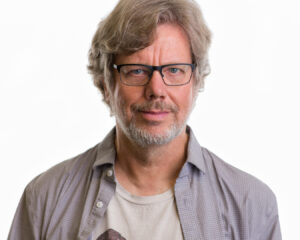Python 3
Python History
Timeline of Python
Python is a computer programming language created by the Dutch programmer Guido Van Rossum.
Van Rossum started the development of Python in December 1989 when he was working for the Centrum Wiskunde & Informatica (CWI), a research center for Mathematics and Computer Science in Amsterdam, Netherlands:
In December 1989, I was looking for a “hobby” programming project that would keep me occupied during the week around Christmas. My office (a government-run research lab in Amsterdam) would be closed, but I had a home computer, and not much else on my hands. I decided to write an interpreter for the new scripting language I had been thinking about lately: a descendant of ABC that would appeal to Unix/C hackers. I chose Python as a working title for the project. (Guido Van Rossum, Foreword for “Programming Python” (1st edition))
Python’s early development started at a research institute in Amsterdam called CWI, which is a Dutch acronym for a phrase that translates into English as Center for Mathematics and Computer Science. (Guido Van Rossum, Personal History – part 1, CWI)
Van Rossum managed to produce a working version of Python in just a few months. This initial version was exclusively used by the programmers of the CWI center. One year later, in February 1991, Van Rossum released Python to the public:
I started working on Python in late December 1989, and had a working version in the first months of 1990… This early version of Python was used by a number of people at CWI… On February 20, 1991, I first released Python to the world… This version was labeled 0.9.0. (Guido Van Rossum, Personal History – part 1, CWI)
During his years at CWI, Van Rossum released the Python versions 0.9.0 through 1.2. The major version 1.0 was released in January 1994.
In April 1995, Van Rossum joined the Corporation for National Research Initiatives (CNRI), a nonprofit organization based in Virginia, USA. Python versions 1.3 through 1.6 came out of CNRI.
In 2000, Van Rossum joined a California-based company named BeOpen.com. Python version 2.0 was the only release from this company.
In March 2001, the Python Software Foundation (PSF) was formed by Van Rossum and other founding members in Delaware, USA. The PSF is a nonprofit organization devoted to the Python programming language. As of this writing, the PSF released the Python versions 2.1 through 3.9, including the major version 3.0, which was released in December 2008.
Origin of Python's Name
Guido Van Rossum selected the name “Python” from a British comedy troupe named “Monty Python”. He was inspired by a popular TV show of the troupe named “Monty Python’s Flying Circus”. In fact, naming computer programs after TV shows was a tradition at the CWI research center:
I picked the first thing that came to mind, which happened to be Monty Python’s Flying Circus, one of my favorite comedy troupes… The word “Python” was also catchy, a bit edgy, and at the same time, it fit in the tradition of naming languages after famous people, like Pascal, Ada, and Eiffel… It also fit[s] in with a tradition in the CWI to name programs after TV shows. (Guido Van Rossum, Personal History – part 1, CWI)
Python’s official documentation, as well as many Python books, frequently use names from Monty Python’s sketches.
Development of Python
Historically, the development of the Python language was achieved by these parties:
- Guido Van Rossum, the creator of the language.
- Organizations and businesses, such as the CWI, the CNRI, BeOpen.com, and the PSF.
- The Python Community, which is a community of volunteer programmers and developers from around the world.
In the early days of Python, Guido Van Rossum was the lead developer of the language. This led his colleagues in the Python project to give him an honorary title called: Python’s Benevolent Dictator For Life (Python BDFL):
Occasionally people ask me about the origins of my nickname BDFL (Benevolent Dictator For Life)… I believe I’ve tracked down the origin of the term BDFL to a Python meeting in 1995. (Guido Van Rossum, Origin of BDFL)
Van Rossum maintained this title from April 1995 to July 2018, when he stepped down from the position:
I would like to remove myself entirely from the decision process. I’ll still be there for a while as an ordinary core developer… But I’m basically giving myself a permanent vacation from being BDFL… I’m tired, and need a very long break. (Guido Van Rossum, Transfer of power)
Currently, the management of the Python project is achieved by the “Python Steering Council”, which is a five-person committee elected online by “Python Core Developers”.

